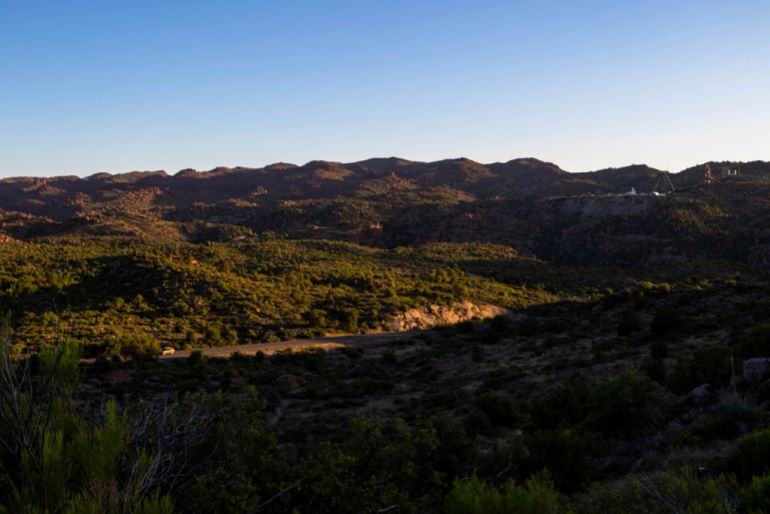A Native American advocacy group’s bid to stop the construction of a large copper mine on land that many Apache people regard as sacred has been turned down by the US Supreme Court.
On Tuesday, the court reversed a lower court’s decision that would allow the project to advance, and the group’s appeal was denied by the court.
A portion of the state of Arizona, known as the Tonto National Forest, is at the center of the case.
The land is referred to as Oak Flat or Chi’chil Bildagoteel in the Apache language by the San Carlos Apache tribe. The land, which has its ancient oak groves, has long been used as a place of prayer, ceremony, and burial, according to tribe members.
However, Rio Tinto and BHP, Rio Tinto’s and BHP’s subsidiary, believes the site is atop the second-largest copper deposit in the world.
Under former US President Barack Obama, the US Congress approved a land swap in which Resolution Copper exchanged 9.71 square kilometers (3.75 square miles) of the Oak Flat forest for other parcels of land in Arizona.
Members of the San Carlos Apache tribe of Arizona claimed that construction on the Oak Flat site would violate their religious rights after the legal dispute broke out. They referred to Oak Flat as a “direct corridor to the Creator” in their petition to the Supreme Court.
Western Apaches and other Native peoples have gathered at Oak Flat, outside of modern-day Superior, Arizona, for sacred religious ceremonies that are unmatched anywhere else, according to Apache Stronghold in a news release in early May.
The group also argued that the project would contravene an 1852 agreement between the US government and the Apaches, which stipulated that the government would “secure the permanent prosperity and happiness of the tribe.”
However, President Donald Trump’s administration has promised to pass the land transfer. According to the US Forest Service, the mining project could result in the equivalent of nearly 40 billion pounds of copper, or more than 18 billion kilogrammes.
However, opponents anticipate that the result would be a crater nearly 304 meters (1, 000 feet) deep and 3 km (2 miles) wide.
The Supreme Court allows a decision to stand from the San Francisco-based 9th Circuit Court of Appeals by refusing to review the Apache Stronghold’s appeal.
That appeals court made the decision in ideological terms in March 2024, allowing the land transfer to proceed: Five judges chose to support and five against.
However, the Apache Stronghold continued its legal fight to the highest court on May 9 when a federal judge in Arizona temporarily halted the government’s request to transfer the land.
Supreme Court Justice Samuel Alito, who is reportedly financially connected to the companies involved, chose not to participate in Tuesday’s decision. However, two justices, Clarence Thomas and Neil Gorsuch, disagreed and criticized the Supreme Court’s decision as “a grave mistake.”
While this Court has the option to pick the cases it will hear, the decision to shuffle this one off our docket is unfortunate.
Without a full explanation, Gorsuch wrote, “It is a grievous mistake that threatens to have lasting effects for generations.”
“Just imagine if the government attempted to destroy a historic cathedral based on a string of contradictory legal arguments. Without a doubt, we would think that the case was worthwhile.
Source: Aljazeera

Leave a Reply